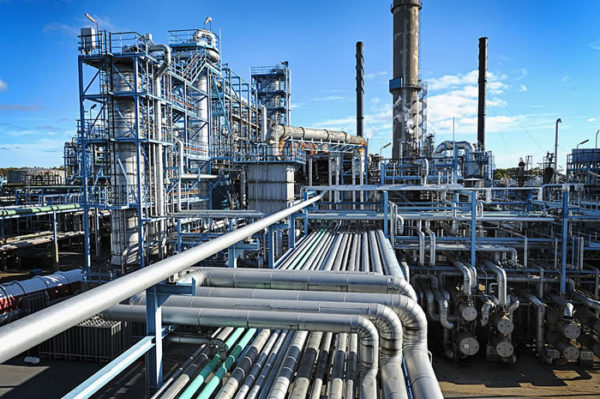*Naira Tumbles As Dollar Shortage worsens
John Danjuma Omachonu
Africa’s largest oil exporter, Nigeria, imports nearly all its fuel as it does not refine nearly enough to meet the demand of her over 200 million citizens despite billions of dollars spent on the Turn Around Maintenance (TAM) exercises as well as monthly remunerations to the workers of the moribund refineries.
Infact, Nigeria is in the grips of foreign currency shortages, which have seen the local currency, naira, weakened to record lows, and crossing the psychological threshold of the N1000/$ in the parallel market.
But, the local currency
has continued its free fall on Wednesday as it exchanged for the dollar at the parallel market at between 1,010/$ and 1,030/$.
However, on the Investors & Exporters forex window, official figures from the FMDQ showed that the naira fell slightly and closed at 765.83/$ from 765.02/$ on Monday. The official market recorded a total turnover of $60.30m.
The development has continued to provide arbitrage opportunities to speculators in a market that has become volatile and unpredictive.
For a country, like Nigeria, fully dependent on oil as the major foreign exchange earner and also for which most of manufacturing components and other social items are imported, it speaks volumes about it’s survival instincts.
Specifically, Naira had maintained a downward trend since the Central Bank of Nigeria (CBN) allowed a free float of the national currency against the dollar and other foreign currencies in June, an action that was part of the early policy announcements by the new Federal government.
This has continued to have negative impact on the accretion to the nation’s foreign reserves that is currently witnessing depletion.
This is aside from about $7 billion backlog in foreign exchange demand that foreign Airlines and other companies have not been able to repatriate to their home countries.
Indeed, in recent years, the country’s economy and oil managers have continued to put the country on life support through the swapping of crude for fuel, action that has deprived the economy of the much needed foreign currencies, particularly the dollar.
President Bola Tinubu assumed office with his ‘Renewed Hope’ agenda and announced some policy measures even from the first day.
Tinubu announced to the whole world that the decades-long monster, subsidy, regarded as evil by past successive governments, but which lacked the political will to deal with it, has gone for good.
Infact, opening up petrol imports to the private sector was part of reforms by President Tinubu to wean the country off fuel subsidies.
Consequently, some fuel companies began imports in July, but has been shortlived by the scarcity of the greenback.
But, the disturbing signal is that Nigeria’s national oil firm NNPC Ltd has again become the sole importer of petrol because local private firms are unable to obtain foreign currency, four months after imports were opened up to private players.
Mele Kyari, its Chief executive, who continues to deny reintroduction of the petrol subsidy scrapped at the end of May, following concerns from investors of a de facto return as pump prices have not moved since July, despite a more than 30% rise in oil Prices, said recently that,
“We are the only company importing PMS into the country.”
Speaking to reporters after a meeting with Tinubu, Kyari dismissed the concerns that a partial fuel subsidy had been restored, adding,
“We are recovering our full cost from the products that we import. No subsidy whatsoever,” he said.
But the explanation is rather begging for more questions than answers as to why a country that is not enjoying the oil windfall, due to importation, could be maintaining same pump price even when prices have gone up at the International market.
Petrol is widely used by households and small businesses to power generators because millions of Nigerians are not connected to the national electricity grid.
Amid all these challenges, some analysts predict that the country’s headline inflation is expected to increase again in September, rising to 27.57% from 25.80% in August.
Should this happen, it will be the 9th consecutive monthly increase in 2023, representing the highest inflation level in the last 18 years (i.e., September 2005).
According to Bismarck Rewane, Chief executive of the Financial Derivatives Company, (FDC) in the latest Economic Bulletin, their research showed that price increases were most notable in the food basket, predominantly commodities with high import content such as flour, semovita, noodles, and sugar.
Blaming it on the Naira, the foremost economist said,
“With prices rising, fingers are pointing towards the exchange rate as the major inflation culprit. The naira crossed the psychological threshold of N1,000/$ in the parallel market, pushing up imported inflation despite the relative stability in global food prices. The FAO food price index was relatively flat at 121.5 pts in September.
Apart from the languishing Naira, there are other inflation-stoking factors including higher logistics costs and money supply growth (36% y-o-y). The price of diesel, the major fuel used by trucks for logistics and distribution purposes, surged to a record high of N1,030/litre.”
ALSO READ:Banks Mobilize Customers For PVS Amid Excruciating FX Scarcity
However, the month-on-month inflation, which is a more current measure of price movement, according to Rewane is expected to decline marginally to 2.78% from 3.18% in August, largely due to the harvest season impact.
“This suggests that inflation is likely to reach an inflection point and could begin to taper in Q1’24,” he said.
But, so far the rising prices of food stuff has been a source of concern even as the purchasing power continues to reduce due to the declining value of the naira.
The development has brought about series of questions by most Nigerians, in view of data integrity issues.
They include, “what is the true & actual level of inflation in Nigeria, what is the best form to hedge against inflation, whether the crisis in the foreign exchange market is inflation induced.
“When will the authorities concerned embark on redenomination and update of data in view of changing dynamics such as population and tastes, decayed infrastructure that hampers early transportation of food stuffs from the farms?
MetroBusinessNews (MBN) checks show that these questions showed a thread of frustration, desperation and near hopelessness on the part of consumers who after denying themselves of other necessities of lives, have not been able to cope with the rising cost of food items.














